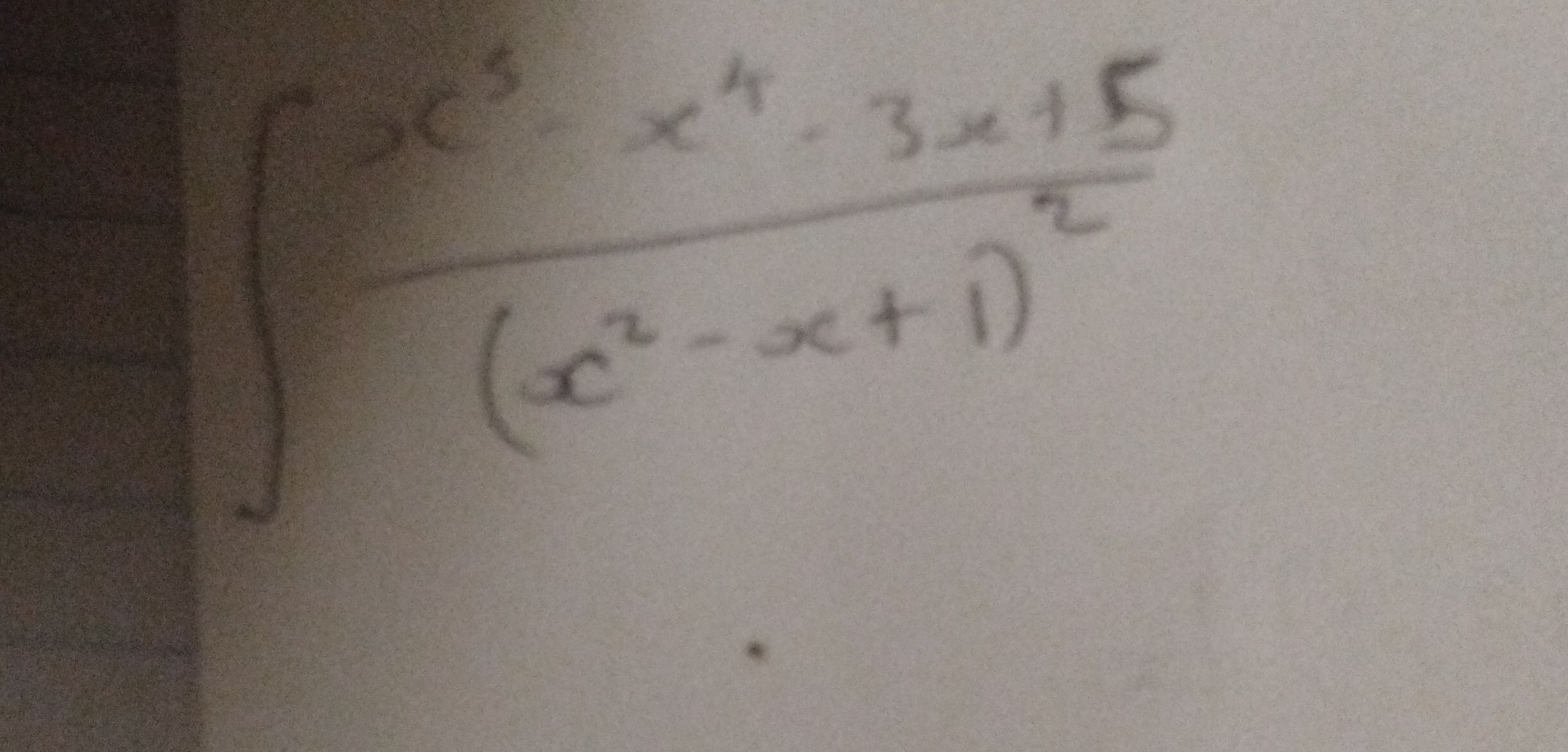AI tutor
Full solution
Q. Evaluate the integral:
- Perform Long Division: We are given the integral:To solve this integral, we will use the method of partial fractions. However, since the degree of the numerator is higher than the degree of the denominator, we first need to perform polynomial long division.
- Rewrite Integral: Perform polynomial long division of by .
- Integrate Polynomials: After performing the long division, we get: (remainder) where the remainder is a polynomial of degree less than .
- Find Remainder: Now we rewrite the integral as:The first integral can be solved directly, while the second integral will require partial fractions.
- Determine and : Integrate , , and separately:
- Partial Fraction Decomposition: Now we need to find the remainder from the long division to proceed with the partial fraction decomposition.
- Solve for , , , : After finding the remainder, we have:remainder = We need to determine and by equating coefficients from the long division.
- Integrate Terms: After determining and , we can write the remainder as: Now we can proceed with the partial fraction decomposition for the integral of the remainder over .
- Combine Final Answer: The partial fraction decomposition for the remainder will be in the form of:We need to solve for , , , and .
- Combine Final Answer: The partial fraction decomposition for the remainder will be in the form of:We need to solve for , , , and .After solving for , , , and , we can integrate each term separately:
- Combine Final Answer: The partial fraction decomposition for the remainder will be in the form of:We need to solve for , , , and .After solving for , , , and , we can integrate each term separately:The integration of these terms may involve completing the square and using substitution to solve the integrals.
- Combine Final Answer: The partial fraction decomposition for the remainder will be in the form of:We need to solve for , , , and .After solving for , , , and , we can integrate each term separately:The integration of these terms may involve completing the square and using substitution to solve the integrals.After integrating, we combine all the terms to get the final answer.

